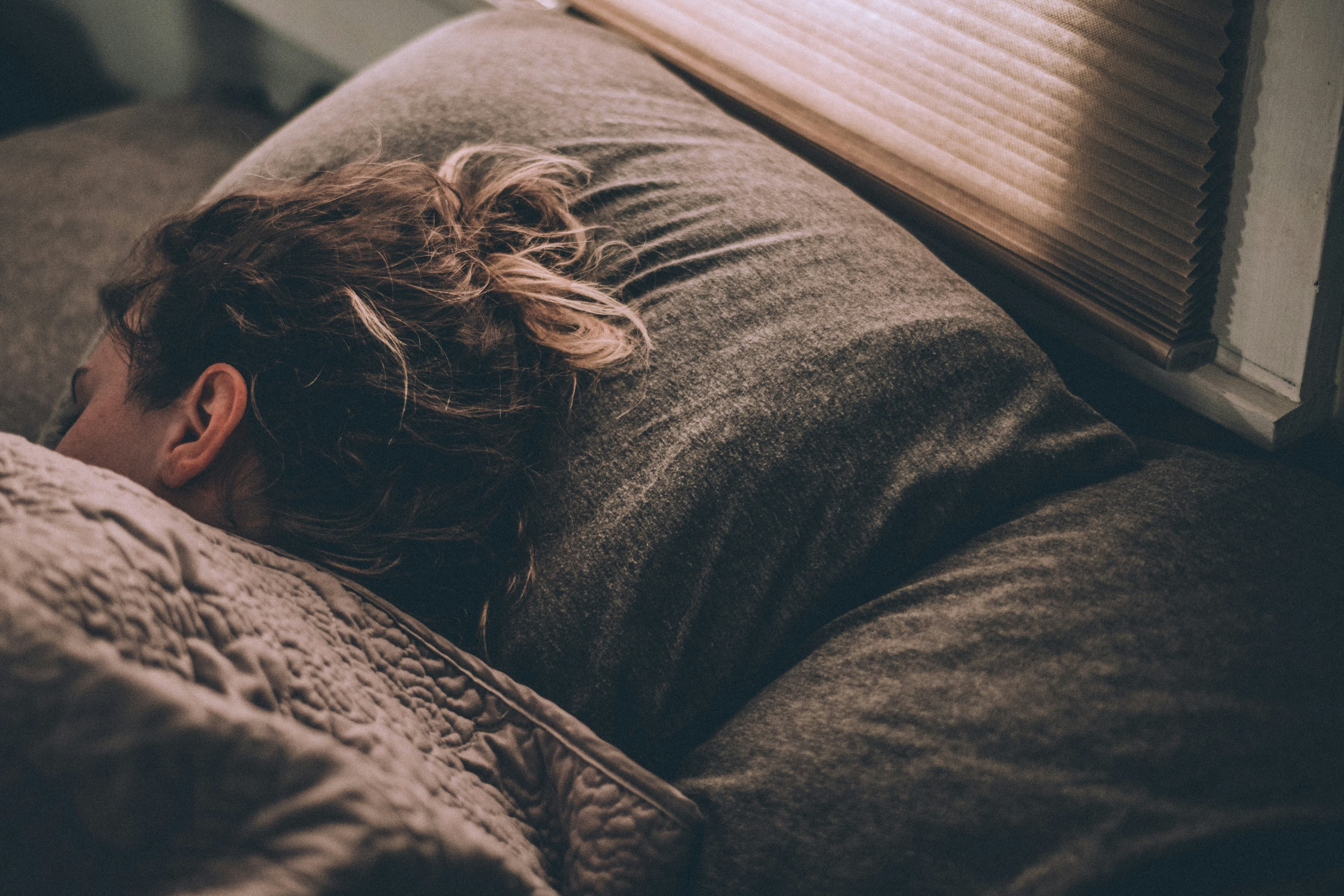Sleep is an integral part of human life, especially for babies and young children. Babies sleep a lot because they need
sleep to grow
. As babies grow into toddlers, children, and adolescents, sleep plays a vital role in their brain, body, and emotional and behavioral development. This is one of the primary reasons you want to ensure your babies and children get the sleep they need. But how much sleep do babies and children need?
The National Sleep Foundation (NSF) has recommended the following sleep needs of babies and children:
Age Range | Recommended Hours of Sleep (NSF) | Recommended Bedtime |
0-3 months old | 14 to 17 hours | No recommended bedtime |
4-6 months old | 12 to 16 hours | 7:00 pm - 8:00 p.m |
7-11 months old | 12 to 16 hours | 6:00 pm - 7:30pm |
1-2 years old | 11- 14 hours | 6:00 pm -7:30pm |
3-5 years old | 10-13 hours | 7:15 pm - 8:30pm |
6-13 years old | 9-11 hours | 7:15p.m-9:00pm |
These recommended sleep times include naps and nighttime sleep. One thing to remember is that these are broad sleep recommendations. Some children may benefit from an hour more or an hour less of sleep. It's also good for you to note that while these are just guidelines, a healthy amount of sleep can significantly benefit babies and children.
Why do bedtimes matter?
Does a bedtime routine matter for children? The short answer is yes, it does. A survey of 10,000 children showed irregular bedtimes are linked with behaviors like hyperactivity, acting out, and being emotionally withdrawn. No bedtime routine or an inconsistent one can affect children the same way as jet lag, resulting in insomnia.
This jet lag effect happens because of the biological clock deep inside the brain called the suprachiasmatic nucleus. This nucleus is a tiny cluster of nerve cells, no bigger than a grain of rice, that's extremely sensitive to light coming from our eyes. When the light begins to fade at the end of the day, a brain hormone called melatonin rises, causing drowsiness. Children have a rise in melatonin earlier in the evening compared to teenagers and adults. So the natural time for school-age children to fall asleep is between 7 to 8 pm.
It's also essential to develop good sleep hygiene early on because proper sleep is essential for growth, immune function, and behavior. Most experts agree that having a sleep schedule leads to healthy sleep habits later on.

Bedtime routines for kids and nap times by age
Sleep is vital for a child's growth. But, how much sleep should your child ideally get for them to get enough sleep? And do they need an afternoon nap schedule as well? Here is some advice on sleep routines by age.
Babies: Newborn to One-Year-Old
Babies go through a lot of changes during their first year, and part of these changes is the amount of sleep they need.
Newborn (0 to 3 Months)
Newborns still have not developed a circadian rhythm. So they typically sleep in spurts of two to four hours of sleep during the day and night. This sleep pattern is because they need to feed. Newborns usually spend between 14 to 17 hours of sleep per day.
The American Association of Sleep Medicine ( AASM) and the American Academy of Pediatrics (AAP) don't list a recommended amount of sleep for newborns. Because fluctuations in sleep patterns can occur during this age. This change in sleep patterns is normal when your baby is this young and doesn't usually indicate any problem. If you want to establish a sleep schedule for your baby, it's best to wait within the 4-6 month range.
Babies usually sleep a lot simply because they need sleep to grow. Sleep allows the brain to develop and facilitates thinking, learning and developing behavior. Sleep together with solid nutrition helps a baby develop physically and acquire better motor skills they need later on.
Premature babies and sleep
If your baby is born prematurely, her sleep pattern will be different from full-term infants. Preemies can sleep up to 22 hours a day, depending on how premature they are. They'll also wake up more often to feed. They also tend to sleep through the night ( about six hours or more) a bit later, usually 10 to 12 months old.
4-6 Months
You can expect your baby to fall asleep anywhere between 12 to 16 hours a day at this age. It's also when they tend to sleep five to six hours in a row during the night. At this time, your baby's nap time will be about three times a day. You can start your baby's biological rhythms by anticipating when they will go to sleep. The trick here is to soothe them and put them to sleep before they get overtired. A good rule of thumb is to put your baby to sleep every two hours.
This age is the sweet spot if you want to start sleep training . Experts don't recommend starting it earlier. Your baby's circadian rhythm has developed, and your baby can go longer without feeding. Sleep training is different from night weaning.
Sleep training is a way of teaching your baby to fall asleep by themselves. You'll usually want to put your baby down when she is drowsy but not still awake, and she'll drift to sleep without needing to be swayed, cuddled, or nursed by you. There is no right way of sleep training your baby, and you can try several methods . There's the:
- Cry it out method (Extinction)
- The chair methods
- Pick up, put down and shush-pat
- Bedtime-routine fading
- Bedtime-hour fading
- Check and Console (Ferber Method)
Sleep training is not for everybody. If you want to try sleep training your baby, keep in mind that there will be a lot of tears involved, both from you and your baby. It can be challenging, but the vital thing to remember is to follow through once you've decided to go through with it. If you need, you can consult with child sleep consultants.
7-11 months
Your baby's total sleep time will remain roughly the same at this age –– about 12 to 16 hours. The main difference will be overnight stretches may reach up to 10 to 12 hours. Your baby's nap time will be reduced to two naps a day, from three. At this point, you would have established a regular bedtime routine with your baby. Try following the same pattern every night so she knows what to expect.
Toddlers: 1-2 Years Old
Your toddler should get anywhere between 11 to 14 hours of sleep every day. Your toddler will still nap at this age. But your toddler will reduce the amount of time she will spend napping to around 1-2 hours.
Your toddler may start with two naps a day, but later on, she may skip her morning nap altogether and take short naps in the afternoon. At this stage, your toddler will be experiencing a lot of excitement as she discovers the world. Understandably she won't want to sleep. So, you need to establish a nap time and consistent bedtime routine and follow it so her sleep needs are met.
Preschool: 3-5 Years Old
Preschool children at this age should get around 10-13 hours of sleep per day, according to top NSF and AASM guidelines. During this time, naps may get shorter, or your active preschooler may skip the nap altogether.
At this time, your preschooler may also experience night wakings because of nightmares and night terrors . Night terrors usually occur when there's partial arousal from a deep sleep. Your child may scream and even sit up, but they are not conscious. There are many causes of night terrors, but one of the causes of night terrors is overtiredness. If your child experiences night terrors, try putting her down for a short afternoon nap. Naps can help with fatigue and can help lessen night terrors. If it persists, you might consider consulting your pediatrician or a sleep consultant.



